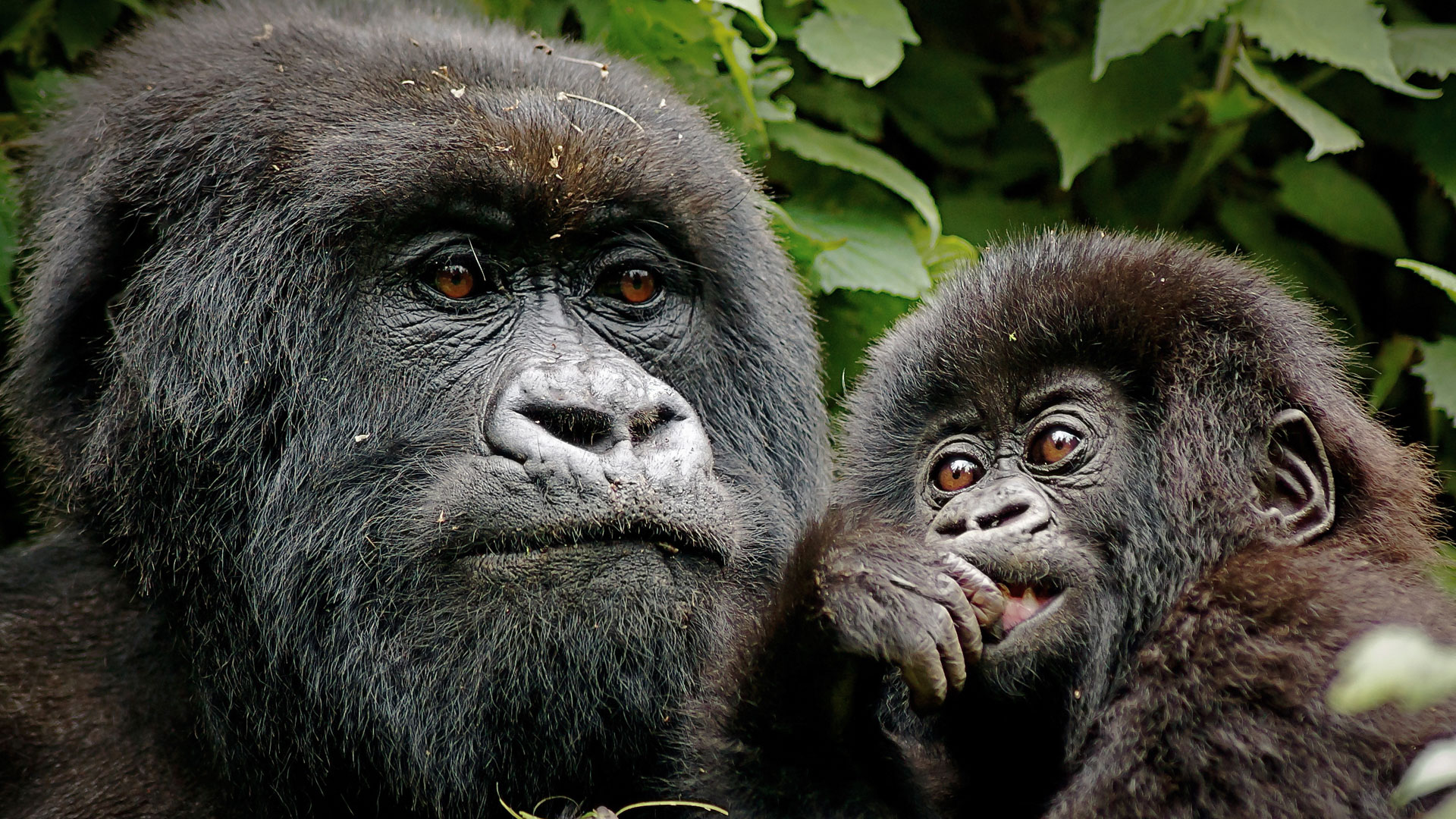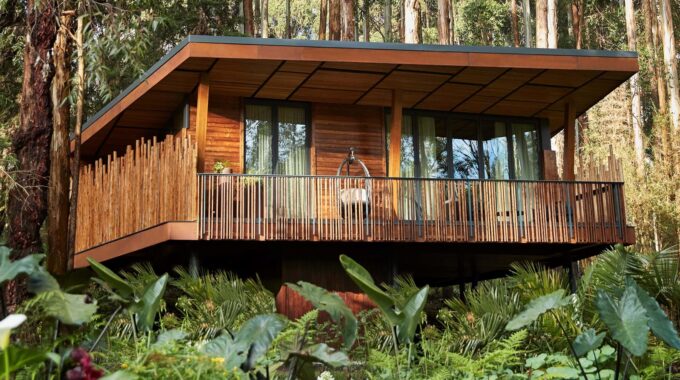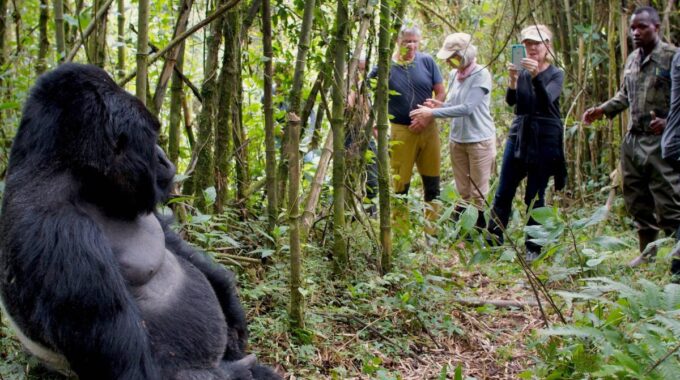Local Cuisine to Try During Your Stay in Rwanda Local cuisine in Rwanda: Rwanda is…
Currency and Payment Methods in Rwanda
Currency and Payment Methods in Rwanda

Introduction
Currency in Rwanda: Traveling to Rwanda for an unforgettable gorilla trekking experience or a broader cultural tour involves more than just flight tickets and permits—it also requires a solid understanding of how money works on the ground. From knowing the local currency in Rwanda to handling cash vs. card payments, understanding the country’s financial systems is key to having a smooth trip.
Whether you’re buying souvenirs in Kigali, paying for your gorilla trekking permit in Musanze, or tipping your porter in Volcanoes National Park, having the right currency and payment methods is essential. In this blog, we’ll walk you through everything you need to know about using money in Rwanda, including currency exchange, mobile money, ATMs, card payments, tipping culture, and safety considerations.
What Is the Local Currency in Rwanda?
Rwanda uses the Rwandan Franc (RWF) as its official currency. The currency symbol is FRw, and it is commonly abbreviated as RWF in international contexts.
Denominations
- Coins: RWF 1, 2, 5, 10, 20, 50, and 100
- Banknotes: RWF 500, 1000, 2000, and 5000
1 USD ≈ 1200–1300 RWF
1 EUR ≈ 1300–1400 RWF
Pro Tip: Always carry small denominations for local purchases, markets, and tipping.
Can You Use US Dollars or Euros in Rwanda?
While some high-end hotels, safari lodges, and tour operators will quote prices in USD or EUR, foreign currencies are not accepted in most local transactions. You will need to convert your currency to Rwandan Francs for day-to-day use.
When USD Might Be Accepted
- Booking gorilla trekking tours through companies like Gorilla Rwanda Safaris
- Paying for luxury lodges and international hotels
- Purchasing gorilla permits through the Rwanda Development Board
Still, even in these cases, the actual payment is often processed in Rwandan Francs, and foreign cash is rarely accepted in stores, restaurants, or local services.
Exchanging Currency in Rwanda
Currency exchange is easy in major cities like Kigali, Musanze, and Rubavu, especially around international banks and airports.
Where to Exchange Money
- Kigali International Airport – Competitive rates but not always the best
- Banks – Reliable but may require identification and longer wait times
- Forex Bureaus – Found in Kigali and tourist hubs; often offer the best rates
- Hotels – Convenient but typically less favorable rates
Tip: Bring new, undamaged USD bills (preferably printed after 2009) for exchange. Older, torn, or heavily marked bills may be rejected.
Using ATMs in Rwanda
ATMs are widely available in Kigali and in towns near national parks. However, their reliability and international access can vary.
Banks with Reliable ATMs for Foreign Cards:
- Bank of Kigali
- I&M Bank
- ECOBANK
- GTBank
Make sure your debit or credit card is linked to major networks like Visa or Mastercard. Not all ATMs accept both.
ATM Tips:
- Maximum withdrawal per transaction is often RWF 100,000 to 200,000
- You may be charged a foreign ATM fee by both the Rwandan bank and your home bank
- Always withdraw cash in urban areas before heading to rural destinations like Volcanoes National Park
Note: ATMs may run out of cash on weekends or public holidays, so plan ahead.
Credit and Debit Card Payments in Rwanda
Card payments are gaining popularity, especially in major cities and tourist establishments. However, don’t expect card machines in remote areas or local markets.
Where Cards Are Accepted:
- Hotels and lodges
- Upscale restaurants
- Supermarkets in Kigali
- Some tour companies
- Fuel stations in cities
Where Cards Are Not Accepted:
- Local restaurants and guesthouses
- Craft markets and roadside stalls
- Small transportation services
- Remote accommodations
Always carry cash for small purchases, tips, and remote transactions.
Mobile Money in Rwanda
Mobile money is widely used in Rwanda, especially by locals and small businesses. The most common service is MTN Mobile Money (MoMo).
Can Tourists Use Mobile Money?
In most cases, you must have a local Rwandan SIM card and ID to register for mobile money services. However, your guide or driver may use it on your behalf for small purchases.
If you’re staying longer or using a local SIM card, consider setting up MoMo for easier payments and airtime purchases.
Tipping in Rwanda
While tipping is not mandatory, it is increasingly expected in the tourism sector as a way to show appreciation.
Suggested Tipping Guidelines:
- Gorilla Trekking Guide: $10–20 per trek
- Porter: $5–10 per trek
- Driver/Guide for multi-day safari: $10–15/day
- Hotel Staff: $1–2 per service
- Restaurant Waitstaff: 5–10% of bill
Always tip in Rwandan Francs when possible. USD may be appreciated but could be harder for locals to exchange.
How to Pay for Gorilla Permits
Gorilla permits in Rwanda cost $1500 per person and are issued by the Rwanda Development Board (RDB).
Payment Options:
- Bank transfers (USD)
- Credit card (Visa/Mastercard) via RDB portal or authorized tour operator
- Local Rwandan bank payments (for residents or agents)
If booking through a licensed company like Gorilla Rwanda Safaris, they will handle the permit and currency conversion on your behalf.
Related Blog: How to Book Gorilla Trekking Permits in Rwanda
Internet and Digital Payment Platforms
Beyond mobile money, Rwanda is steadily becoming a cashless society. You may encounter:
- POS systems in urban shops
- Tap-to-pay functionality in select locations
- QR code payments at major banks and supermarkets
However, none of these systems are widely used in rural areas or near national parks, so cash remains king in the field.
Budgeting and Daily Expenses in Rwanda
Budget Traveler:
- Dorm or guesthouse: RWF 10,000–20,000
- Meals: RWF 2,000–5,000/day
- Transport: RWF 5,000/day
Mid-Range Traveler:
- Lodge/hotel: RWF 50,000–100,000
- Meals: RWF 10,000/day
- Activities: RWF 50,000+
Luxury Traveler:
- Lodge: RWF 300,000+
- Fine dining: RWF 25,000+
- Guided treks, safaris: $1500+
Safety Tips for Handling Money in Rwanda
- Carry only what you need for the day
- Use a money belt or secure wallet
- Avoid displaying large amounts of cash in public
- Store valuables in a hotel safe
- Use ATM machines inside banks or shopping malls
Currency Exchange Scams to Avoid
- Be cautious of unlicensed money changers
- Always count your money carefully before leaving the counter
- Avoid changing money on the street
Recommended Read: Travel Safety Tips for Rwanda Visitors
Accessibility for Travelers with Different Currencies
While most tourists arrive with USD or Euros, travelers from other countries should be aware:
- British Pounds, Canadian Dollars, and Australian Dollars are not widely accepted or exchanged
- Exchange rates for less common currencies are poor
- You’re better off converting to USD or EUR before arrival
Quick FAQ: Currency and Payments in Rwanda
Q: Can I use my foreign debit card at Rwandan ATMs?
A: Yes, but ensure it’s Visa or Mastercard and check for foreign transaction fees.
Q: Are credit cards widely accepted in Rwanda?
A: Mostly in Kigali and luxury establishments. Cash is essential elsewhere.
Q: What’s the best way to carry money in Rwanda?
A: A combination of Rwandan Francs for daily expenses and a credit/debit card for emergencies or large payments.
Q: Can I pay for my gorilla trek in cash?
A: No. Permits must be paid in advance via bank or card through the RDB or your tour operator.
Suggested Related Blog Posts
- Visa Requirements for Traveling to Rwanda
- Travel Insurance Considerations for Adventure Travel
- What to Pack for Gorilla Trekking in Rwanda
- Accessibility and Transportation to Volcanoes National Park
- Understanding the Park’s Ecosystem
External Resources
- Rwanda Development Board – Gorilla Permits
- National Bank of Rwanda – Exchange Rates
- XE Currency Converter
- Visa & Mastercard ATM Locator
Final Thoughts
Understanding currency and payment methods in Rwanda is a key part of planning a hassle-free and respectful travel experience. From navigating Kigali’s digital payment systems to tipping your porter in Volcanoes National Park, knowing when to use cash, cards, or mobile money helps you avoid unnecessary stress.
Be prepared, carry a mix of cash and cards, and when in doubt—ask your guide. Rwanda is a remarkably organized and welcoming country, and with the right financial prep, your gorilla trekking adventure will be smooth and unforgettable.
Murakoze cyane! (Thank you very much!)



